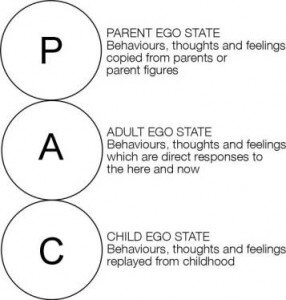If You Do Not Change Direction, You May End Up Where You’re Heading
Do you ever find yourself, when faced with stress, taking that path that is dark and full of thorny bushes, blustering winds or scorching sun with no shade, filled with the same familiar faces that sneer and jeer, where few mirrored windows of reality show you how things could be if you would only choose the different path, or they show you your reflection that you hardly recognise?
Do you feel that there is a pull to that path? You know too well that you do not enjoy your time there but still, as though your feet are no longer your own, you begin that same stretch.
These paths always result in you being harmed, by you, or your life put at risk by the choices you make along the way. Maybe they end with you harming someone else and one day, if continued, the only result will be someone else’s death, or; perhaps this path leads you to what you perceive to be insanity - where you feel as though you no longer have control.
Some clients may sit with me and discuss the paths that they take when faced with stress and as a therapist, I will be thinking about a theory in transactional analysis (TA) called escape hatches (Boyd & Boyd, 1980); the 3 hatches that are open when people make their choices from script, instead of their Adult. I've spoken in previous blogs about script and ego states but for those who are not familiar with the blogs or theory, I will describe them briefly here.
According to Eric Berne, founder of TA, during our childhood, through our experiences of the world, parents and ourselves, we make decisions that form our script. These decisions are around how we fit into the world, how we function and cope, and how we survive; our script is essential for our survival and sometimes, when we are adults, these script decisions cause more harm than good. For example, someone who grew up in a chaotic household may never have felt that they got to make decisions, when they asked for something they never got it and people always seemed too busy to pay them any attention. One of their decisions as a child may have been not to be important, that way; they were never expectant of others and therefore wouldn't be disappointed. In adulthood, this may be carried through to their adult relationships, instead of viewing each situation and person as different, and this can have the effect of the self-fulfilling prophecy i.e. people treat you how you think you deserve to be treat.
Ego-states theory on the other hand, also derived from Eric Berne, suggests that we all have a Parent, Child and Adult part of ourselves; when we are in one of our ego-states then we are said to be thinking, feeling and behaving as we did when we were a child or as we saw or experienced or care-takers. The only ego-state that is not affected by past experiences is the Adult, where we think, feel and behave in the here-and-now.
To link this back to the current blog, people access destructive choices from their script and therefore archaic decisions, which are not reflective of the here-and-now situation, are the influence. When an individual has a greater Adult ego state, that is not contaminated by their Parent or Child, then the hatches to these paths, the escape hatches, are said to be closed.
Let me give you some examples of escape hatches to put this into real life context instead of theory; using food as an example, those who under or over eat are harming themselves and ultimately they could do this to such an extent that they kill themselves, through their behaviours. Someone who experiences themselves as having a problem with anger, explains how their short fuse or intolerance for certain situations, means that they often fight or are violent to others’; this too can easily have a deathly consequence and if this person is only violent towards others whilst they are steaming drunk – then they have two escape hatches open (harming self through alcohol misuse and harming others). Alcohol and drug misuse is also evident of the going crazy escape hatch as the individual is in an alter state of reality and may indeed lose control.
Escape hatches are accessed, if they are open, when we are under stress or as a way of meeting one or more of our hunger needs. Berne suggests that we have 7 hunger needs; we have a hunger to be recognised by others, to have contact and emotional warmth from others and for sexual contact (to list only a few) and if we do not have a strong sense of self, or using TA, a stable enough Adult, then we could meet these needs through using our script decisions i.e. seek our sexual and contact hunger by being promiscuous without using protection (harming self and harming others), as we decided when we were little, that to get our needs met, we must please others and discount ourselves.
So how do you close these escape hatches so you can choose the other path we mentioned at the beginning? So you can willingly walk down the rout where you feel safe, free and happy? Psychotherapy is a process which is had between yourself and your therapist; where you look at where and why your script decisions evolved. Through the therapeutic process you gain insight and awareness into your own thoughts, feelings and behaviours throughout varying situations, you look at which experiences influence your choices (which ego-state you use) and what is it that your destructive patterns (open escape hatches) are an attempt at avoiding (your inner self as opposed to your scripty self). As you are doing this in a relationship context with your therapist, you also gain the confidence and experience of being able to describe what happens for you and how you have talked yourself in and out of situations, which is also a growth in your emotional intelligence.


